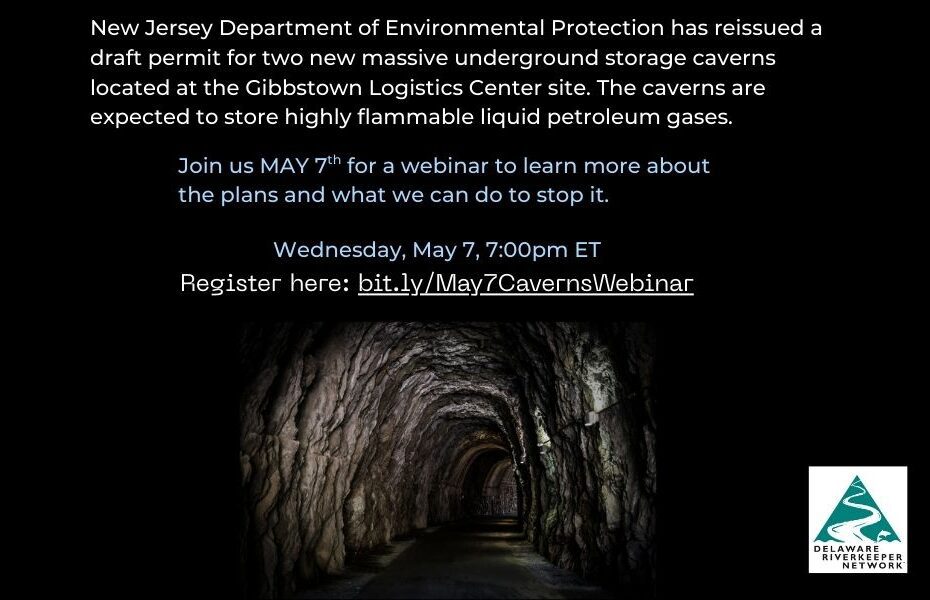NJDEP is proposing NJ’s largest Underground Storage of Liquid Gases at Gibbstown, Gloucester Co. NJDEP issued a draft permit to Delaware River Partners (DRP) for two new massive underground storage caverns at their Repauno (Gibbstown Logistics Center) site on the Delaware River in March, then they withdrew it without explanation. Now they have reissued a draft permit, set a public hearing for Wednesday May 14 and set a written comment period through June 16.
May 7th Webinar
Join our webinar 7pm, Wednesday, May 7 to learn all about it and what you can do.
On our webinar, we will discuss the draft permit, DRP’s plans for the site and share points that people can make at the upcoming hearing and in writing.
Register for our May 7 webinar here.
May 14th NJDEP Public Hearing
NJ DEP will host a hybrid Public Hearing on the draft permit May 14. You can sign up now to speak, either in person on virtually.
To speak virtually or in person, register with DEP. View the NJDEP Draft Permit Notice.
Wednesday, May 14, 6:00pm to 9:00pm
St. Michael’s Mutual Club Event Hall
406 Memorial Ave.,
Gibbstown, NJ 08027
Background:
If approved, these caverns will store 26.8 MILLION gallons of liquid gases in two new underground caverns. This is more than four times the volume of underground storage their one cavern supplies now, bringing the total of underground gas storage to over 32 million gallons. This would be the largest underground cavern liquid gas storage complex in New Jersey. And would be located under lots of other infrastructure, including the proposed Gibbstown Liquefied Natural Gas (LNG) Export Terminal. The site is located right up against local schools and parks, and where people live, work, conduct business. And is less than 3 miles from the environmental justice community of Paulsboro. This proposal has large regional implications, will release air pollution, and puts hundreds of thousands of people and the Delaware River environment in jeopardy should there be an uncontrolled release!
Liquid petroleum gases (LPGs) include butane, propane and ethane, among other gases, but do NOT include Liquefied Natural Gas (LNG), which is prohibited under NJ regulations. LPGs are flammable, potentially explosive, and routinely release pollution through venting and flaring.

